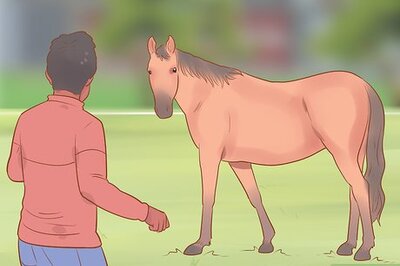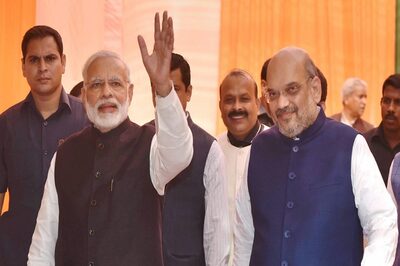
views
The Delhi High Court has issued a slew of guidelines for persons seeking religious conversions for the purpose of inter-faith marriages. Expressing concern over religious conversions, the High Court issued directives saying that the person converting must know the implications under new religion on divorce, inheritance and Maintenance.
The guidelines prescribed certain documentation as proof of consent by a person seeking religious conversion. The court further mandated an affidavit by the concerned individual, stating that she/he is aware of the implications to convert their faith in order to tie a knot.
“Conversion to another religion which is uninformed may not prepare a convert with the consequences that they will now not be able to follow their form of religion in case the religion they are converting to, does not permit so. This becomes more critical in case their reverting back to their religion may ensue legal, matrimonial, succession and custody related consequences. This court is only concerned with such situations. These situations may arise by conversion to any religion whatsoever,” Justice Swarana Kanta Sharma said.
Notably, the High Court’s judgment came while refusing to quash an FIR lodged against a man for the offence of rape and criminal intimidation on the ground that he and the alleged victim married each other. In the case, the court underlined the “story of love, lies, law, and litigation” as it transpired that the man and the woman were already married to different partners, before marrying each other.
While the man, a Muslim, as per his personal law could marry for a second time, he could not have married this woman, who was a Hindu, as her husband was alive and she was not divorced. The court said that it must not be expected that as a matter of right, the marriage between the prosecutrix and the accused is sufficient ground for quashing the FIR of every case registered under Section 376 (rape) of IPC.
Delhi HC Guidelines
- As per the Delhi High Court’s latest guidelines, the individual seeking conversion is now required to submit a certificate of conversion in the vernacular language of the person. This is to ensure that the individual correctly understands what he/she is signing.
- The High Court has mandated affidavits that must be obtained by the concerned persons/authorities at the time of inter-faith marriage after conversion. Marriages performed under the Special Marriage Act of 1954 are excluded from the above-mentioned directive.
- Affidavit regarding the age, marital history and marital status and evidence thereof of both the parties.
- The court directed that an affidavit must also be obtained to the effect that the conversion is being done voluntarily after understanding the implications and consequences related to marital divorce, succession, custody, and religious rights.
- The guidelines also state that the prerequisites will not be apply to the person converting back to his/her original religion, since the convert is already well-versed in his/her original religion.
(With inputs from PTI)




















Comments
0 comment